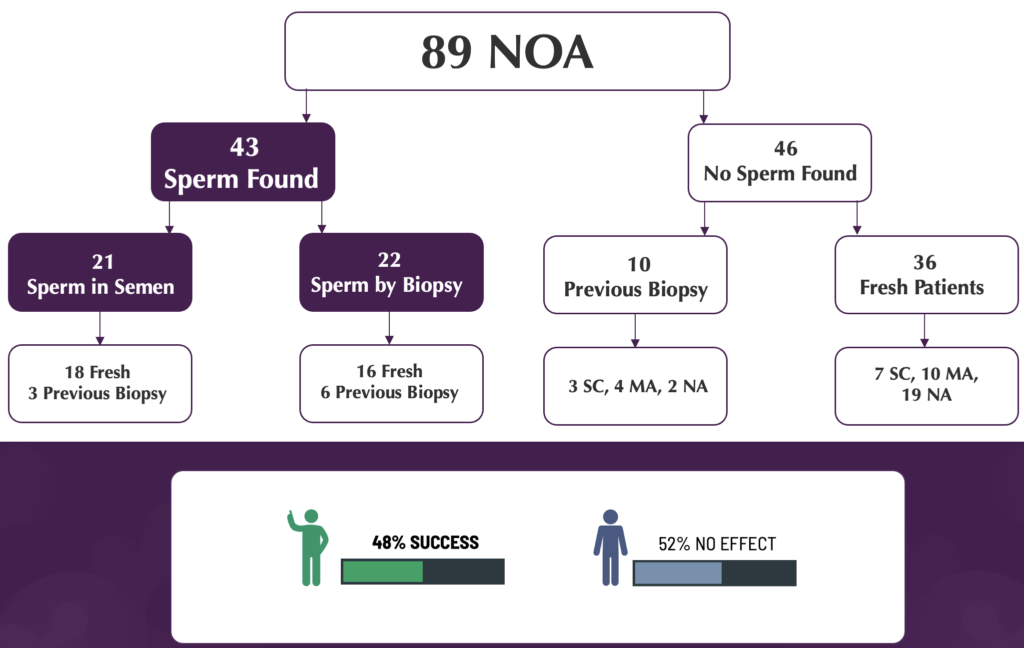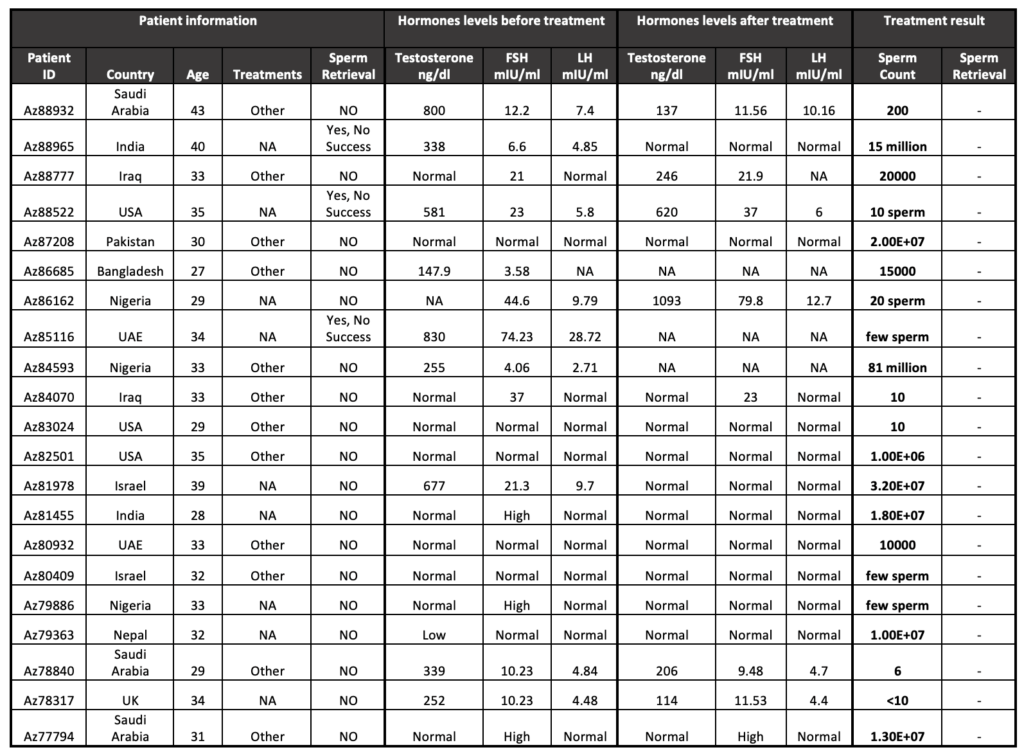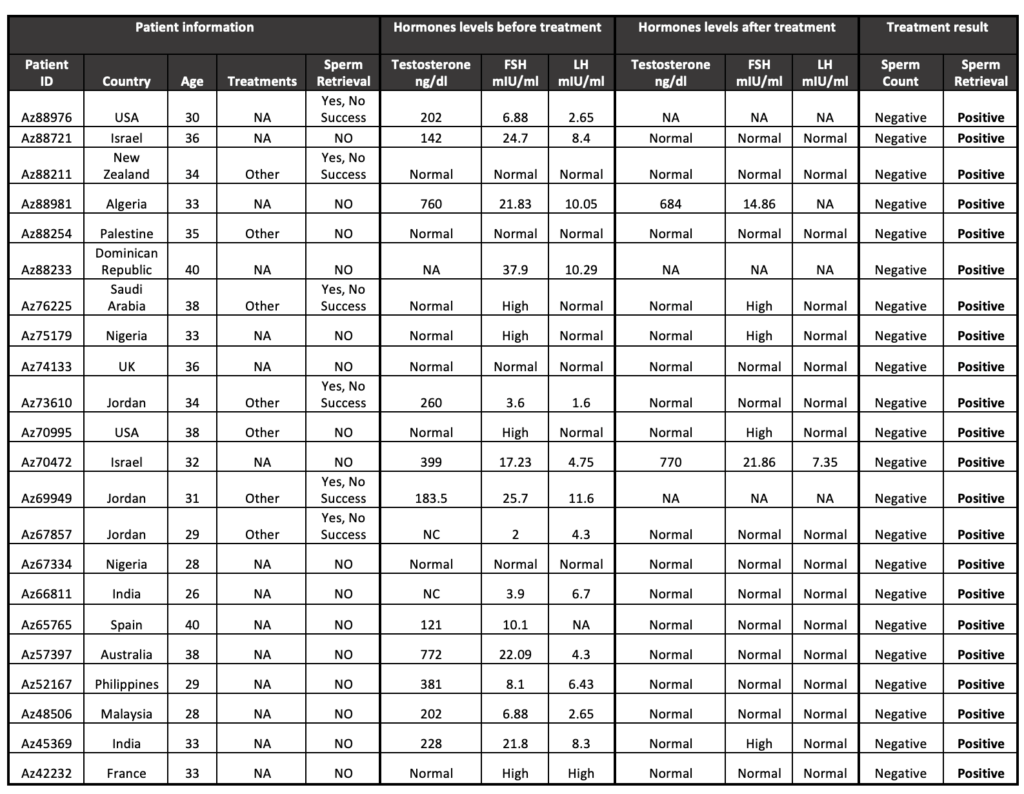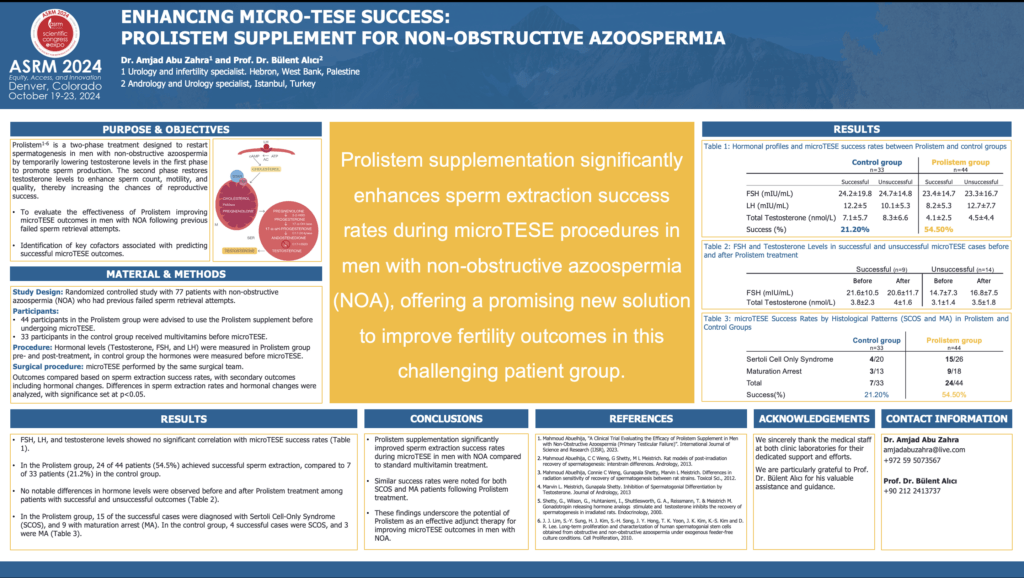Prolistem Clinical Study
1) Clinical Study Published 2023
A Clinical Trial Evaluating the Efficacy of Prolistem® Supplement in Men with Non-Obstructive Azoospermia (Primary Testicular Failure)
Patients who had undergone six months of Prolistem® treatment were subjected to semen analysis, and if no sperm were found, we recommended TESE or micro-TESE procedures. In 48% of the cases following the treatment, either through semen analysis or sperm retrieval, sperm was successfully found. Among the patients, 23% found sperm in their semen (Table 1), ranging from a few to a few million, while 25% underwent successful TESE or micro-TESE surgery to retrieve sperm (Table 2). However, for 52% of patients who received our treatment for six months, there was no observed effect, which may be attributed to unknown genetic factors.

Conclusion
The present study investigated the efficacy of Prolistem® treatment in an animal model of azoospermia and in a clinical trial involving 89 patients with non-obstructive azoospermia. The animal model demonstrated a 100% positive response to the treatment, which is consistent with our previous studies. However, the clinical trial showed a success rate of 48%, possibly due to unknown genetic factors.
Previous research has shown that testosterone has an inhibitory effect on spermatogonial differentiation in azoospermia cases. Additionally, suppression of testosterone with GnRH antagonist has been shown to stimulate spermatogonial differentiation, which is then reversed by exogenous testosterone. In contrast, testosterone plays a supportive role in normal spermatogenesis by promoting the survival and differentiation of spermatocytes and spermatids.
Chemical drugs that lower testosterone levels would be ideal for treating azoospermia, but their use may be associated with major side effects. Thus, physicians are cautious about testosterone supplementation in low testosterone cases, instead recommending natural ways to increase testosterone levels. In this regard, Prolistem®, which reduces testosterone levels naturally with no side effects, presents a promising treatment option for non-obstructive azoospermia.
Until recently, non-obstructive azoospermia was considered an untreatable condition. However, our study provides evidence that Prolistem® has the potential to restore fertility in affected individuals by reducing testosterone levels naturally.
Table 1: shows the details of 21 patients who successfully found sperm in their semen after completing the six-month course of Prolistem® treatment. To protect their privacy, these patients were given special IDs. The table includes their age, country and previous treatments, Hormone levels were measured before and after the treatment, and the results are presented in the table below.

Table 2: shows the details of 22 patients who successfully found sperm by sperm retrieval after completing the six-month course of Prolistem® treatment. The table includes their age, country and previous treatments, Hormone levels were measured before and after the treatment, and the results are presented in the table below.

2) A clinical study published in 2024 at the ASRM (American Society for Reproductive Medicine)
ENHANCING MICROTESE SUCCESS: PROLISTEM SUPPLEMENT FOR NON-OBSTRUCTIVE AZOOSPERMIA
OBJECTIVE
MATERIALS AND METHODS
RESULTS
CONCLUSIONS
IMPACT STATEMENT


